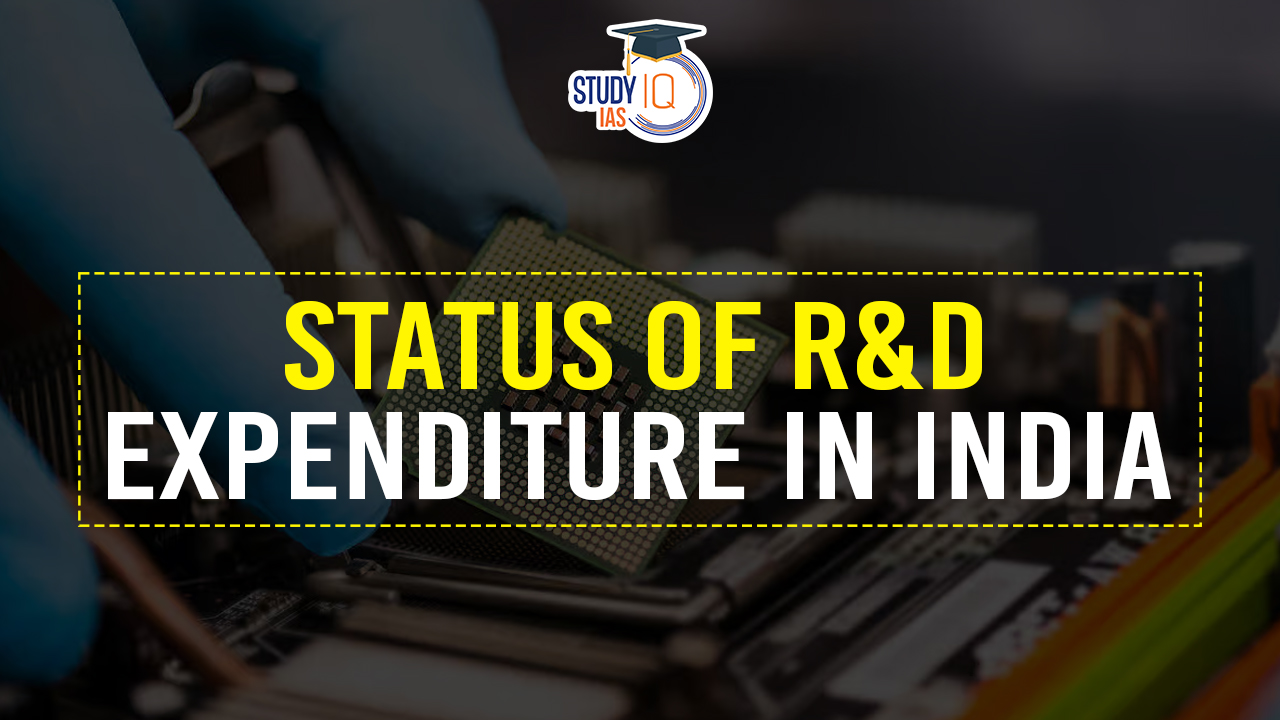Table of Contents
Context: The Union Budget 2025-26 includes significant allocations for scientific research and development.
Reasons for Allocations for Scientific Research and Development
Nuclear Energy Mission
- The government has allocated ₹20,000 crore for a Nuclear Energy Mission to support research and development of small modular reactors (SMRs), with a goal to operationalize at least five indigenously developed SMRs by 2033.
- This initiative aims to boost India’s energy security and shift towards cleaner power while maintaining grid stability.
- The plan is to reach 100 GW of nuclear capacity by 2047, backed by reforms to encourage private-sector involvement in nuclear projects.
Research, Development, and Innovation Initiative
- The budget includes a substantial allocation to the Research, Development, and Innovation initiative, intending to boost private sector-led research.
- This is part of the Department of Science and Technology (DST)’s expected expenditure, with an overall budgetary increase to ₹23,290 crore for DST schemes.
- The initiative builds on efforts announced in July 2024 to drive private sector-led research.
Deep Tech Fund
A Deep Tech Fund of Funds has been introduced to promote next-generation start-ups in the country.
PM Research Fellowship Scheme
The budget proposes 10,000 fellowships under the Prime Minister’s Research Fellowship scheme over the next five years to support research at IITs and IISc.
National Geospatial Mission
- The Union Budget also introduced a National Geospatial Mission with an outlay of Rs 100 crore for 2025-26.
- The mission aims to “develop foundational geospatial infrastructure and data” and will be funded under the Pradhan Mantri Gati Shakti, or the National Master Plan for Multi-modal Connectivity.
Issues and Implications
- Absorption Capacity: A key concern is whether the massive investments can be effectively absorbed, given the historical challenges in translating funding into tangible results.
- Infrastructural Support: India still lacks essential infrastructure, such as chipsets, semiconductor fabs, a skilled engineering workforce, and a strong innovation ecosystem, which are crucial to capitalize fully on these investments.
- Private Sector Participation: India’s R&D landscape has suffered from low private sector participation, with only 36% contribution.
- The success of the new initiatives depends on incentivizing private innovation and ensuring long-term engagement from industry leaders.
- Implementation Gap: There is a widening gap between policy announcements and actual implementation, as seen in the discrepancy between the allocated and actual spending in research-related initiatives.
- Small Modular Reactors: SMRs are mostly still under development and have not been deployed commercially anywhere in the world.
- Although a few are currently under construction in various countries like China, Russia, and Argentina, and some pilot projects are operational with limited capacity.
Current Status of R&D Expenditure in India
- Decline in R&D Expenditure: India’s R&D spending has decreased to 0.64% of its GDP, down from 0.8% in 2008-2009 and 0.7% in 2017-2018.
- Government Concerns: Despite calls from within its ranks to double R&D spending, the Indian government has not yet achieved this goal.
- Comparison with Developed Countries: Most developed nations allocate between 2% and 4% of their GDP to R&D, with OECD member countries averaging 2.7%.
Goals for Enhanced R&D Investment
- National Targets: The 2013 Science, Technology, and Innovation Policy and the 2017-2018 Economic Survey have both emphasised the goal of raising Gross Expenditure on R&D (GERD) to 2% of GDP.
- Expert Recommendations: Specialists advocate for India to allocate at least 1%, ideally 3%, of its GDP to R&D annually until 2047 to significantly impact development.
Challenges in Raising R&D Funding
- Reliance on Public Funding: The majority of India’s R&D funding comes from public sources, indicating a nascent private investment landscape.
- Private Sector Contribution: In 2020-2021, the private sector accounted for 36.4% of GERD, with the government contributing 43.7%.
- In developed countries, around 70% of R&D funding typically comes from private entities.
- Budget Underutilization: The Indian Ministry of Science and Technology often does not fully utilise its allocated R&D budget.
- Departmental Spending: The DBT utilised 72% of its budget, DST used 61%, and DSIR spent 69% of their respective allocations for centrally sponsored schemes in 2022-2023.
Steps Towards Sustainable R&D Funding
- Encouraging Private Sector Involvement: The Indian government aims to increase private sector contributions to R&D spending.
- Strategic Financial Planning: Addressing the under-spending and under-utilisation of R&D funds is crucial.
- Political Will: Enhanced political prioritisation of R&D is necessary for India’s growth, requiring action from both the Science Ministries and the Ministry of Finance.
- Incentivizing Private Investment: Providing tax rebates, easing FDI norms, and creating clear regulatory pathways can boost private investment in R&D.
- Bureaucratic Efficiency: There’s a need for improved bureaucratic processes to expedite grant approvals and disbursements.
- Monitoring and Evaluation: Strengthening the capacity for evaluating science projects and monitoring fund utilisation is essential.
Conclusion
While the massive boost in R&D funding is a positive step, its success depends on overcoming structural challenges, ensuring private sector participation, and building essential research infrastructure. Without these measures, India risks falling short of its ambitious scientific and technological goals.


 RNA-Based Antiviral for Deadly Agricultu...
RNA-Based Antiviral for Deadly Agricultu...
 Top 10 Economies in the World 2025, Chec...
Top 10 Economies in the World 2025, Chec...
 Minors Bank Account above 10 Years: Chan...
Minors Bank Account above 10 Years: Chan...





















